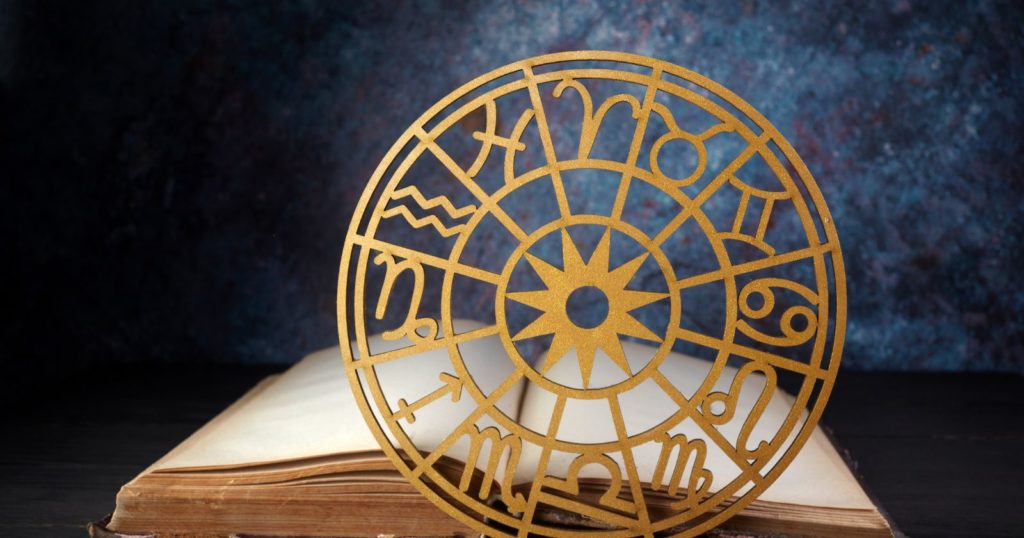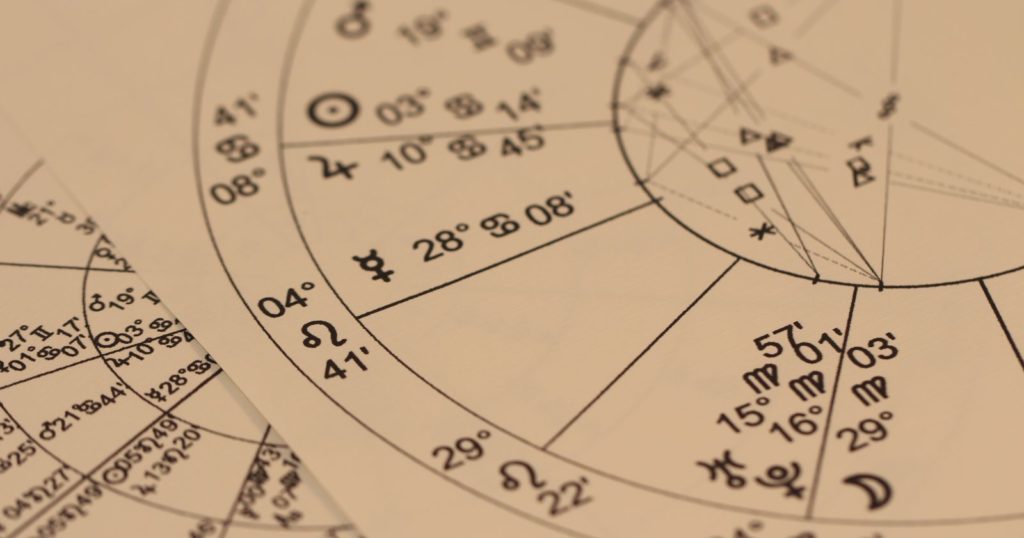In the vast expanse of the cosmos, humans have long looked to the stars for guidance and understanding, giving birth to the field of astrology. The practice of astrology involves the interpretation of celestial bodies’ movements and their supposed influence on human affairs and the natural world. At the heart of this belief system lie the zodiac signs and horoscopes, which many individuals follow religiously to make sense of their lives.
Astrology is more than a passing fad or trend. For many, it’s a way of life, dictating decisions from relationship choices to career paths. Zodiac signs and horoscopes are considered personal roadmaps, guiding one towards their destiny. However, the fundamental question arises, how accurate are these zodiac signs and horoscopes?
This article aims to bring a fresh perspective to your understanding of astrology, particularly zodiac signs and horoscopes. By exploring the origins of astrology, scientific studies on the subject, and the limitations within the field, we hope to help you understand why your zodiac sign and horoscope might not be as precise as you believe.
Historical Perspective of Astrology and Zodiac Signs
Astrology’s roots date back to the 3rd millennium BC, originating in ancient Babylonia. The Babylonians closely observed the celestial bodies’ movements, believing them to be messages from the gods. Their interpretations eventually shaped astrology as we know it today.
In the history of human civilization, astrology has played a vital role. It was seen as a tool of wisdom, offering insights into future events and individual destinies. Astrology shaped kings’ decisions, warriors’ strategies, and guided everyday individuals in their lives.
The zodiac, central to astrology, is a circle of twelve 30-degree divisions of celestial longitude that are centered upon the ecliptic: the apparent path of the Sun across the celestial sphere over the course of the year. The paths of the Moon and visible planets remain close to the ecliptic, within the belt of the zodiac, which extends 8-9 degrees north or south of the ecliptic, as measured in celestial latitude.
Ancient astronomers and astrologers observed and recorded the patterns of celestial bodies, creating the twelve zodiac signs: Aries, Taurus, Gemini, Cancer, Leo, Virgo, Libra, Scorpio, Sagittarius, Capricorn, Aquarius, and Pisces. Each sign was associated with specific characteristics and traits believed to influence an individual’s personality and destiny.
Transitioning from ancient times to the present day, astrology has morphed significantly. What began as a complex system of celestial observation and prediction has transformed into a mass-market phenomenon of horoscopes and personality profiling. Despite the change, the belief in the relevance of zodiac signs has endured.
The Basis of Modern Astrology
Modern astrology has evolved into a multifaceted practice, more psychodynamic than divinatory. It’s more concerned with understanding the individual and their psyche, which is reflected in the personality traits associated with zodiac signs. Horoscopes, astrology’s most popular tool, provide daily, weekly, monthly, and yearly predictions based on one’s zodiac sign.
The creation of a horoscope involves casting an astrological chart, or ‘natal chart,’ based on the exact moment and location of an individual’s birth. The positions of the sun, moon, planets, and other celestial bodies at the time of birth are charted on an astrological wheel, their placements in various ‘houses’ or segments of the chart determine different aspects of one’s life.
Planets represent different energies and forces that influence our lives. ‘Houses’ in the astrological chart signify life areas, and the zodiac signs indicate the ways these energies manifest. For instance, Mars represents energy and aggression, while the house it falls in could indicate where that energy is most noticeable, and the sign it is in shows how that energy is expressed.
Astrology’s influence has permeated pop culture and the digital realm, with numerous websites and apps offering daily horoscope readings and astrological advice. It’s used for everything from predicting personal fortune to determining compatibility in relationships, making significant life decisions, or simply as a form of entertainment.
Despite astrology’s popularity, it’s riddled with misconceptions. Many people confuse sun signs (the position of the sun at your birth) with their overall astrological profile. However, a full natal chart considering the positions of all planets and houses provides a much more in-depth and accurate astrological picture.
The Science Behind Astrology
When it comes to astrology, there’s a significant disconnect between the faith of its practitioners and the views of the scientific community. This discrepancy primarily arises due to astrology’s basis on the earth’s relationship with the cosmos, a relationship that science continually updates and refines.
Astronomically, zodiac signs are based on the position of the sun relative to certain constellations at a person’s time of birth. The problem here is that the constellations, as defined by the International Astronomical Union (IAU), do not align perfectly with the 12 equally sized sectors (30 degrees each) used in astrology.
The most significant factor contributing to the mismatch is a phenomenon called the ‘precession of the equinoxes.’ Precession is the slow movement of the rotation axis of a spinning body, caused by the gravitational pull of nearby bodies. For Earth, this gravitational pull is exerted by the sun and the moon on our planet’s equatorial bulge, causing the earth’s axis to move in a slow, conical motion.
Western astrology uses the ‘tropical zodiac,’ which relates to the seasons and not the constellations. It begins at the point where the sun is at the vernal equinox (about March 21) and divides the ecliptic into twelve equal parts from that point. Conversely, the ‘sidereal zodiac,’ used by Indian and some other forms of astrology, relates more directly to the constellations. It’s subject to the precession of the equinoxes, causing it to slowly drift away from the tropical zodiac.
Most scientists dismiss astrology as pseudoscience, citing the lack of empirical evidence to support the claims astrologers make. They argue that there’s no scientifically verified mechanism by which celestial bodies can influence personality traits or future events.
Various studies have tried to validate astrology scientifically. One of the most well-known was conducted by French statistician Michel Gauquelin, who suggested that there might be a correlation between a planet’s position in a person’s birth chart and their professional destiny. However, other scientists have heavily criticized his methodology, and subsequent studies have failed to replicate his results, leaving the matter unresolved.
Why Your Zodiac Sign and Horoscope Could Be Wrong
As mentioned earlier, the precession of the equinoxes causes the earth’s rotational axis to shift slightly over time. This shift has caused the zodiac signs as we know them to be out of alignment with the constellations they’re supposed to represent. For example, when the astrological sign of Aries begins, the constellation Aries is not behind the sun; Pisces is. This discrepancy alone could mean that your assigned zodiac sign is incorrect.
Adding to the mix is ‘Ophiuchus,’ the supposed 13th zodiac sign. Astronomers from the Minnesota Planetarium Society pointed out that due to the earth’s wobble on its axis over the past 3000 years, the sun aligns with Ophiuchus for about 18 days each year. This means if you’re born during this period, your zodiac sign in astrology might not reflect your ‘true’ zodiac sign astronomically.
Horoscopes, while they may offer comforting or even uncannily relevant advice, are incredibly generalized. With over 7 billion people in the world, it’s unrealistic to expect that everyone born under the same zodiac sign would share the same experiences or characteristics. The daily predictions you read for your zodiac sign might feel right, but they could also apply to anyone else, regardless of their zodiac sign.
This brings us to the concept of ‘confirmation bias.’ It’s a cognitive bias where individuals favor information that confirms their pre-existing beliefs and ignore information that contradicts them. So, when your horoscope predicts a positive interaction in your day, you’re likely to remember any positive interaction that happened and credit your horoscope for its accuracy, while conveniently forgetting the predictions that didn’t pan out.
Often, different astrologers or astrology platforms will provide contrasting readings for the same zodiac sign. This inconsistency can undermine the credibility of horoscopes, making it evident that they’re not as precise or reliable as you might think.
A psychological phenomenon, known as the ‘Barnum effect’ or ‘Forer effect,’ also plays a part in why horoscopes often seem accurate. This effect occurs when individuals believe that vague and general statements apply specifically to them, even though they could apply to a broad range of people.
Some experts, like Neil deGrasse Tyson, a renowned astrophysicist, have openly criticized astrology. Tyson points out the arbitrariness of the traits assigned to each zodiac sign and the lack of a physical basis for the supposed influence of a distant star or planet on a person’s destiny.
Summarizing the points discussed, while astrology and its tools like zodiac signs and horoscopes might offer some psychological comfort and cultural relevance, they are not scientifically reliable predictors of personality traits or future events.
Conclusion
Through this article, we have traversed the world of astrology, exploring its historical roots, its modern implications, and the scientific facts that challenge its validity.
As intriguing as astrology can be, it’s crucial to maintain a critical perspective. While astrology offers a unique way of seeing the world, it shouldn’t replace personal judgment or the importance of making informed decisions.
Recognizing astrology as part of our cultural heritage and human fascination with the cosmos is acceptable, as long as we understand its limitations. It provides a rich language for human character traits and has the potential for introspective thinking.
It’s always healthy to question and seek knowledge, even when it comes to cherished beliefs. By doing so, we open ourselves up to a better understanding of the universe and our place within it. We hope this article has provided you with new insights into astrology and a fresh perspective on zodiac signs and horoscopes.
References
- “Astrology: A History” by Peter Whitfield
- “The Fated Sky: Astrology in History” by Benson Bobrick
- “The Precession of the Equinoxes and Astrology” by Dr. Alois Treindl




